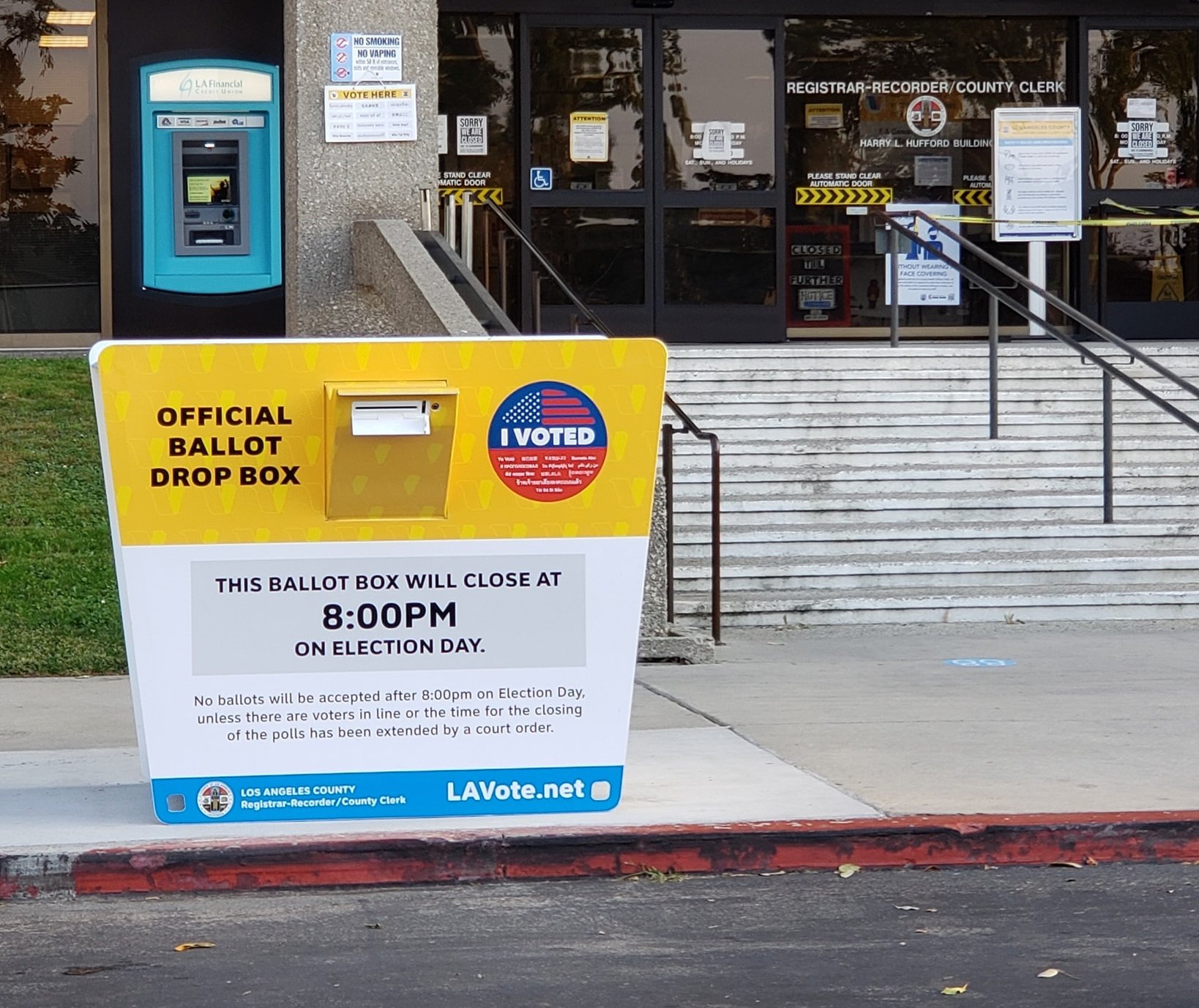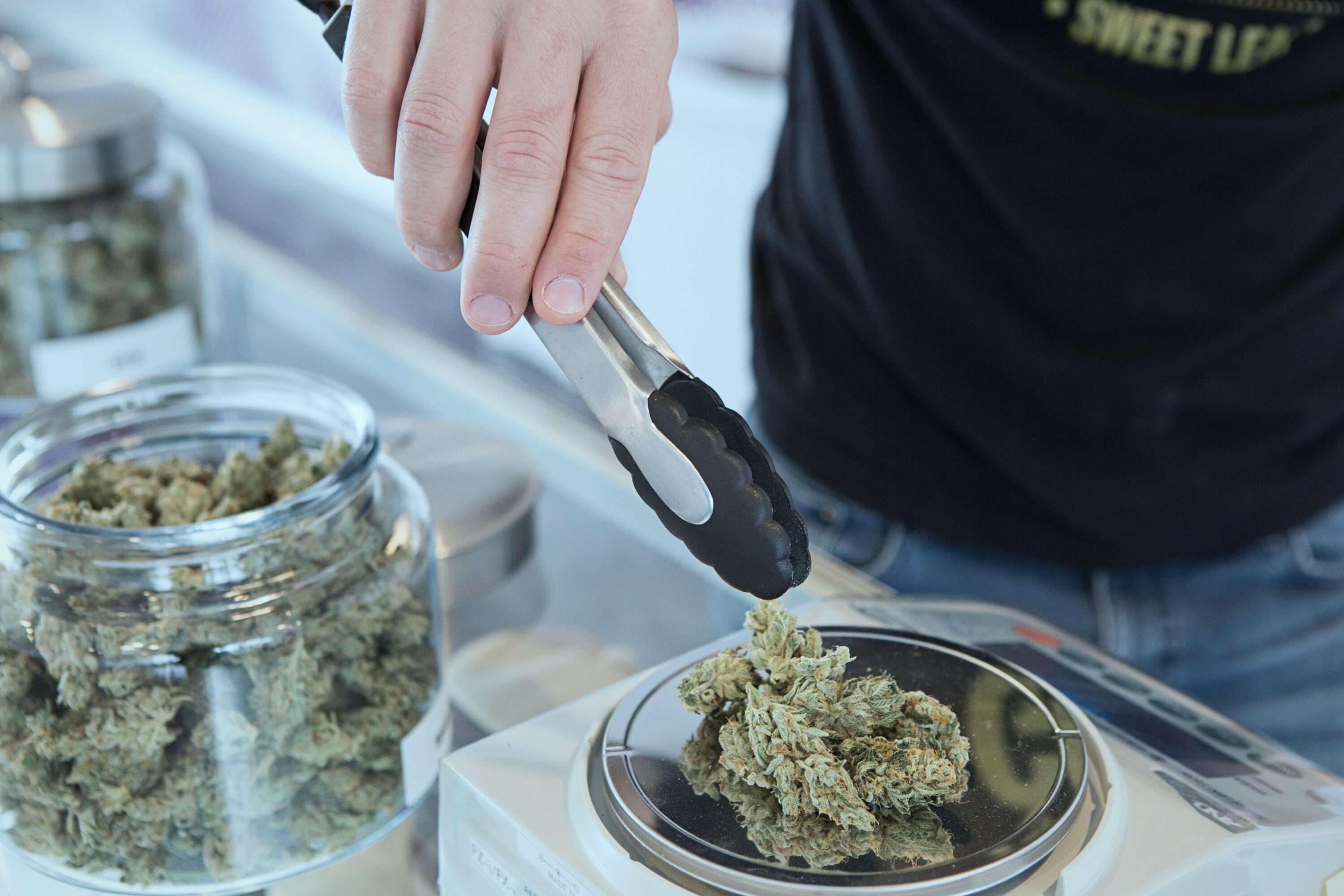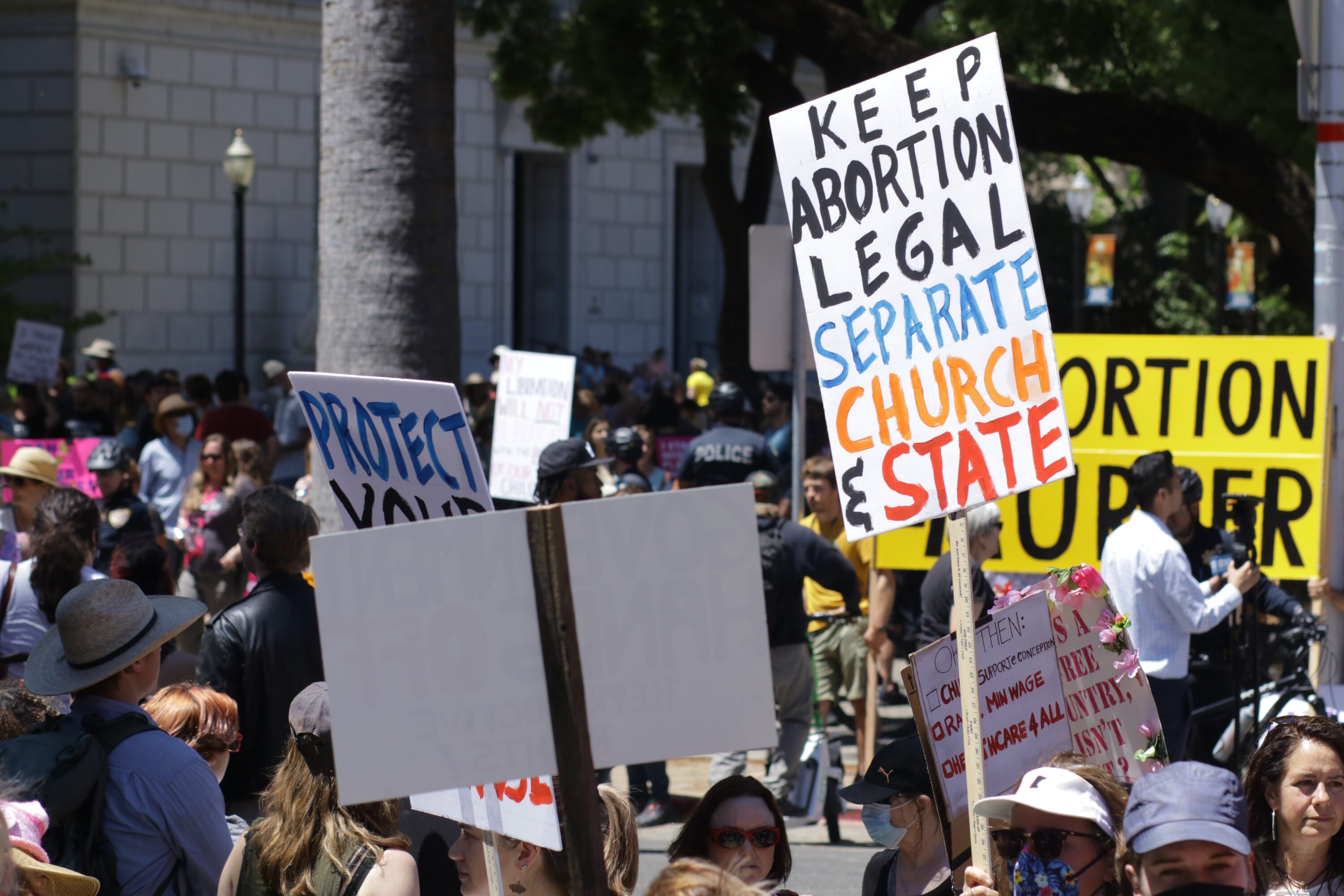An expensive and at-times contentious campaign to become the next mayor of Los Angeles ends Tuesday, with polls indicating the race between Rep. Karen Bass and developer Rick Caruso tightened in its final weeks.
Bass, a six-term member of Congress, is seeking to become the first woman and only the second Black person to lead Los Angeles. Caruso, a billionaire, is looking to win a campaign that’s on track to spend over $100 million — much of it from Caruso’s own fortune — to propel him into contention.
Bass held a comfortable lead in the polls just a month ago, but recent surveys ahead of Election Day show that Caruso has closed the gap considerably. Bass led Caruso 45% to 41% in a UC Berkeley Institute of Governmental Studies poll conducted from Oct. 25-31 — co-sponsored by the Los Angeles Times — with the gap within the margin of error. A Southern California News Group poll conducted by J. Wallin Opinion Research from Oct. 15-17 found a 3-point lead for Caruso, which was also within the margin of error.
An earlier version of the UC Berkeley IGS Poll in early October showed Bass with a 15-point advantage among likely voters.
Experts told City News Service that, while the electorate in Los Angeles favors Bass, the race could hinge on other factors.
“The conventional metrics tell me that Karen Bass is going to win,” said Fernando Guerra, professor of political science at Loyola Marymount University. “However, there are two things: The general discontent with the electorate, and $100 million being spent by Caruso — and that makes a difference, obviously.”
Whoever wins the election will inherit leadership of a city grappling with a scandal that has embroiled City Hall for the past month, after three council members and a top county labor official took part in a leaked conversation in October 2021 that included racist comments and attempts to manipulate redistricting.
“We’ve had a really volatile month in L.A. County, and Rick Caruso has made a late push here that clearly has made, at least in the polling, a significant difference,” said Mindy Romero, director of USC’s Center for Inclusive Democracy.
Caruso has connected the controversy to claims that the system is broken — exacerbating issues such as homelessness and crime. He painted himself as the candidate of change, blaming a failure of leadership for the City Hall scandal.
“People are spending more time protecting themselves and protecting their jobs than working for the residents of the city,” Caruso said during the final mayoral debate on Oct. 11. “This is why we have crime out of control.”
Bass said at the debate that she would make sure Los Angeles rejects “the politics of divide and conquer.” Bass, who beat Caruso by nearly 8 percentage points in the June primary, has sought to frame her opponent’s campaign as one driven solely by Caruso’s wallet.
In an interview with City News Service in October, Bass said Caruso “represents the worst of our political discourse.”
“He shows the worst of what can happen when you have somebody who has unlimited resources, and then you have someone who is raising money and abiding by all the rules,” Bass said. “He has no rules. He has just writes checks.”
Caruso countered that by pulling from his personal funds and not taking money from special interest groups, he would not be swayed by lobbyists and have the city’s best interests at heart.
Bass has also criticized Caruso for switching political parties. Caruso was a Republican until 2019 and donated to anti-abortion politicians, allowing Bass to contrast herself as a “lifelong, pro-choice Democrat” in a city that leans heavily Democratic.
Caruso said at a debate in September that he has always been socially liberal, and that he left the Republican Party in 2019 because it didn’t reflect his values — noting his support for Gov. Gavin Newsom and former Gov. Jerry Brown.
“I liked the Democratic Party of 10 years ago and I like the Democratic Party of today,” Bass said. “Because the Democratic Party of today is more diverse — more diverse politically and diverse in every single way.”
Caruso, in perhaps an acknowledgement of most major Democrats endorsing Bass, responded: “It doesn’t seem to be accepting me.”
Both candidates have acknowledged the gravity of the homelessness crisis in Los Angeles but differed on how to approach it. The latest point-in- time homeless count released this month showed a 1.7% increase in the number of unhoused people in Los Angeles since 2020, bringing the total to 41,980.
Caruso said the premise of his plan to address homelessness would be to get people into shelters, noting his goal to build 30,000 new shelter beds in his first year in office.
“We’ve got to meet people where they are,” Caruso said.
Bass said that, while getting people off the streets is important, “shelters are not the answer.”
“What we have done for too long is we have put people in shelters,” Bass said. “Now the shelters have become so dangerous, people don’t even want to be in the shelters and are choosing to be outside on the street.”
Bass called for what she calls a more comprehensive approach, prioritizing services, addressing the root cause of homelessness and creating permanent housing.
Caruso said he believes shelters ultimately are a better and more efficient way to provide services to unhoused people. He said he supported clearing encampments “at a certain point and time” because of potential crime and impact to surrounding neighborhoods. He said encampments were “unfair to the community.”
Bass responded that “at the end of the day, you can’t criminalize poverty.”
“If you have them in jail, they’d be there for three days and then right back out on the street,” Bass said.
The two candidates have also accused each other of being in scandals connected to USC.
Caruso accused Bass of corruption in connection with accepting a $95,000 scholarship at USC’s School of Social Work, with the Times reporting that Bass was offered the scholarship before applying to the program.
“I think anybody who is under a cloud of corruption should not be qualified to be in a leadership position, especially now,” Caruso said at the last debate. “Because the mayor has to stand (for) what is right for the residents of the city, period, and not be looking over their back to see what’s happening.”
Bass has hit Caruso, the former USC Board of Trustees chairman, of mishandling the fallout from dozens of sexual assault charges being filed against former campus gynecologist George Tyndall. Tyndall has pleaded not guilty, but USC agreed to pay more than $1.1 billion to his former patients in a March 2021 settlement, the largest sex abuse payout in higher education history.
“The real USC scandal we need to talk about is how Rick Caruso failed to protect these young women and then covered up the sexual assaults against them,” Bass said in a statement, referring to Caruso not making public an investigation conducted into Tyndall.
Caruso has maintained that the report wasn’t released because he was concerned about the victims being retraumatized.
Initial results from Tuesday’s voting will be posted by the Los Angeles County Registrar-Recorder/County Clerk shortly after 8 p.m. — but experts cautioned that people should not read too much into them, with millions of vote-by-mail ballots still to be counted. A close race might not be determined until late this week.
“I would totally caution people to make any decisions or conclusions until probably midday, late Wednesday, maybe even Thursday, depending on how fast it is,” Guerra said.
The prolonged process of counting and verification that comes with accepting ballots by mail is a good thing, according to Romero.
“We want that process to go through every step that it needs to go through,” Romero said. “It’s part of ensuring voter confidence, and part of our democratic process here in the state of California.”







